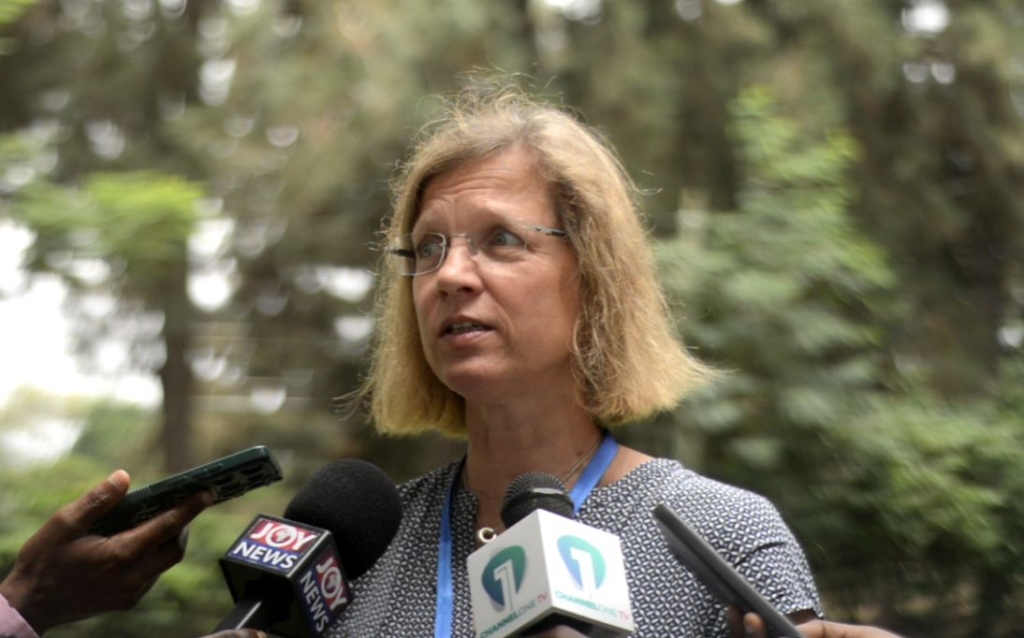Population growth, agricultural intensification and other aggressive land use changes are expected to accelerate greenhouse gas emissions in West Africa.
According to a new study, the effects of increased emissions will contribute to heat-related health illnesses, influence climate change and impact agriculture.
Researchers are admonishing smallholder farmers to set up tree canopies to preserve carbon pools in soil and vegetation.

The study, “Greenhouse Gas Determination in West Africa’s Agricultural Landscapes (GreenGaDe)”, focused on the emission of primary greenhouse gases, carbon dioxide, methane, and nitrous oxide that contribute to global warming.
These greenhouse gases absorb long-wave radiation hindering the heat from escaping into outer space, ultimately causing global warming and climate change.
The effects of this phenomenon have become pronounced with population growth and agricultural expansion.
Consortium principal investigator of the GreenGaDe Project, Dr. Prof. Anja Linstaedter, encouraged smallholder farmers to adopt tree canopy systems on their farm lands.
“Forests in agricultural ecological systems are important. They facilitate carbon storage. Mitigating the impact of climate change, and the like. In the future climate change will be more severe. And I would encourage farmers to look into the future and improve their carbon field by developing more tree canopies,” she said.
The study conducted in Ghana, Burkina Faso, and Niger aims to inform climate adaptation policies and promote climate-smart agriculture among smallholder farmers.
The study aims to quantify carbon pool dynamics and GHG emitted under different land use practices, and to improve stakeholders' understanding of GHG dynamics in the West African region.
Stakeholders, and agricultural experts have been assembled in a workshop in Kumasi in a fact sheet, presentations, and discussion on the greenhouse gas determination in West Africa’s agricultural landscapes.
Principal investigator for the Ghana project team, Dr. Reginald T. Guuroh believes that the workshop will effect stronger collaborations to improve agriculture and climate related issues.

“Nitrous oxide emissions occur mostly through agricultural activities associated with increased use of synthetic fertilizers, deposition of animal excreta (urine and dung), disproportionate application of manure to farmlands, and inefficient use of irrigation water.
“One aspect is the engagement of farmers, testing their practices and their knowledge. And farmers have been educated and waiting on the adoption of climate-smart adoptions. And our partners have been very helpful in finding results,” he said.
The GreenGaDe project is one of six projects that was funded by the German Federal Ministry of Education and Research (BMBF) under the framework of WASCAL II - Research Call.
The project was in partnership with Council for Scientific and Industrial Research - Forestry Research Institute of Ghana (CSIR FORIG), Laboratory of Plant Biology and Ecology, University Joseph Ki-Zerbo (UJKZ), Radio-Isotopes Research Institute, Department of Nuclear Physics and Chemistry, University Abdou Moumouni (UAM), Institute for Environment and Agricultural Research (INERA), University of Potsdam, Biodiversity Research / Systematic Botany (UP) and University of Kassel, Center for Environmental Systems Research (UK).
Latest Stories
-
I’m confident posterity will judge my performance well – Akufo-Addo
6 minutes -
Syria’s minorities seek security as country charts new future
47 minutes -
Prof. Nana Aba Appiah Amfo re-appointed as Vice-Chancellor of the University of Ghana
54 minutes -
German police probe market attack security and warnings
54 minutes -
Grief and anger in Magdeburg after Christmas market attack
55 minutes -
Baltasar Coin becomes first Ghanaian meme coin to hit DEX Screener at $100K market cap
2 hours -
EC blames re-collation of disputed results on widespread lawlessness by party supporters
2 hours -
Top 20 Ghanaian songs released in 2024
2 hours -
Beating Messi’s Inter Miami to MLS Cup feels amazing – Joseph Paintsil
3 hours -
NDC administration will reverse all ‘last-minute’ gov’t employee promotions – Asiedu Nketiah
3 hours -
Kudus sights ‘authority and kingship’ for elephant stool celebration
3 hours -
We’ll embrace cutting-edge technologies to address emerging healthcare needs – Prof. Antwi-Kusi
3 hours -
Nana Aba Anamoah, Cwesi Oteng special guests for Philip Nai and Friends’ charity event
3 hours -
Environmental protection officers receive training on how to tackle climate change
3 hours -
CLOGSAG vows to resist partisan appointments in Civil, Local Government Service
5 hours

